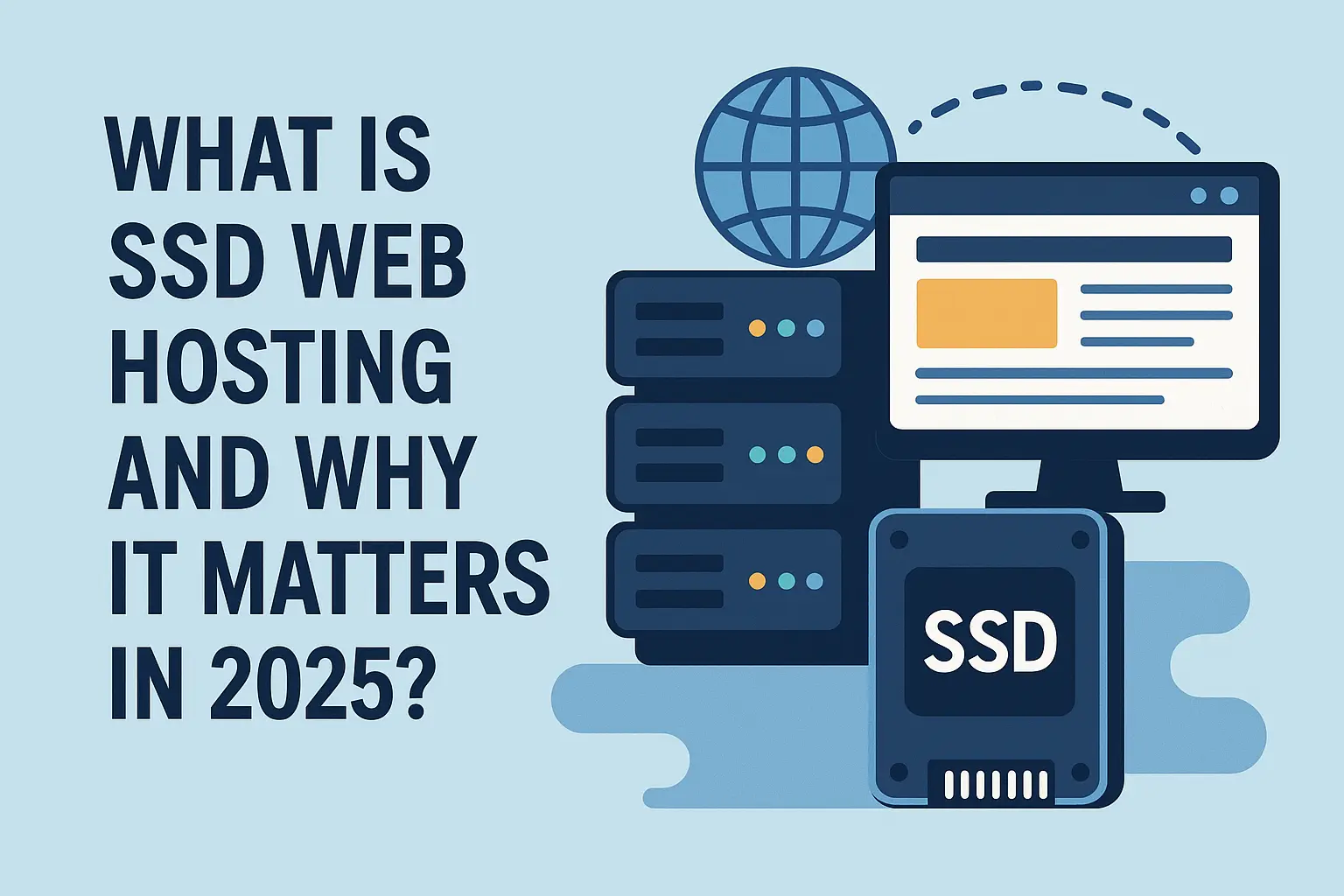SSD web hosting benefits are transforming how websites perform in 2025. If you’re wondering what SSD hosting explained means and why it matters, this article breaks down the basics and advantages in simple terms to help you make an informed hosting decision.
Criteria for Choosing a Hosting Provider
- Speed: How quickly your website loads affects user experience and SEO.
- Uptime: Reliable hosting guarantees your site is accessible almost all the time.
- Customer Support: 24/7 assistance is crucial for resolving issues fast.
- Scalability: Ability to upgrade resources as your site grows.
- Pricing: Transparent and competitive pricing with good value.
- Security: SSL, backups, malware protection, and firewall defenses.
Overview of the Highlighted Hosting Provider: Hostinger
Hostinger is a popular hosting provider known for affordable SSD hosting plans that cater to beginners and small to medium websites. They focus on speed, ease of use, and reliable customer support, making them a recommended choice for 2025.
In-Depth Review of Hostinger
Hosting Plans
Hostinger offers shared, cloud, VPS, and WordPress hosting plans, all powered by SSD storage for fast performance.
Performance
With SSD hosting, Hostinger websites load significantly faster—up to 300% quicker than traditional HDD hosting—thanks to solid state drives that have no moving parts and deliver data almost instantly[1][6].
Reliability
Hostinger guarantees 99.9% uptime, supported by SSDs that reduce hardware failure risks and downtime[7].
Pricing
Hostinger’s plans start affordably with discounts available, offering excellent value for SSD hosting[Hostinger].
Real Use-Cases
Ideal for blogs, small business websites, and startups looking for fast, reliable hosting without breaking the bank.
Pros & Cons
- Pros: Fast SSD storage, affordable pricing, 24/7 support, easy-to-use control panel
- Cons: Limited advanced features on basic plans
Comparison with Competitor Hosts
Compared to Kinsta, known for premium managed WordPress hosting with SSDs and enterprise-grade performance, Hostinger is more budget-friendly but less feature-rich.
DreamHost also offers SSD hosting with strong privacy policies and unlimited bandwidth, making it a solid alternative for privacy-conscious users.
Rose Hosting provides SSD VPS hosting with strong performance and dedicated resources, suitable for growing websites needing more control.
Comparison Table: Pricing & Features
| Provider | Plan Name | Price/Month | SSD Storage | Support Type | Free SSL | Backups |
|---|---|---|---|---|---|---|
| Hostinger | Single Shared | $1.99 | 30 GB | 24/7 Live Chat | Yes | Weekly |
| Kinsta | Starter | $35 | 10 GB | 24/7 Support | Yes | Daily |
| DreamHost | Shared Starter | $2.59 | 50 GB | 24/7 Ticket & Chat | Yes | Weekly |
| Rose Hosting | VPS Basic | $39 | 50 GB | 24/7 Support | Yes | Daily |
Performance & Reliability
SSD hosting uses solid state drives that access data in as little as 0.2 milliseconds compared to 20 milliseconds for traditional HDDs, resulting in much faster website load times[10].
Servers with SSDs also experience fewer hardware failures due to no moving parts, increasing uptime and reliability[1][7].
Many providers offer 99.9% uptime guarantees backed by SSD technology and global server locations for low latency worldwide.
Customer Support & Ease of Use
Top SSD hosting providers like Hostinger and DreamHost offer 24/7 live chat, ticket systems, and onboarding help to ensure smooth setup and quick issue resolution.
Security Features
- Free SSL certificates to secure data transmission
- Regular backups for data protection
- Malware scanning and firewall/DDoS protection
- Strict privacy policies to safeguard user data
Extra Benefits
- Free email accounts with hosting plans
- Easy website migration services
- Website builder tools for beginners
- Staging environments and automated backups for developers
Final Verdict: Who Is It Best For?
SSD web hosting is best for anyone who values fast, reliable website performance in 2025. Hostinger is ideal for budget-conscious users and small to medium websites seeking speed and ease of use. For enterprise-level or resource-intensive sites, providers like Kinsta or Rose Hosting offer advanced features and dedicated resources.
Additional Services and Professional Help
Many SSD hosting providers offer add-ons like premium support, dedicated IP addresses, and developer tools. Managed services and professional migration assistance are common to simplify website setup and maintenance.
Company Values and Differentiators
Leading SSD hosts often emphasize eco-friendly data centers, employee-owned business models, or support for open-source projects, setting them apart in the hosting market.
Customer Experiences and Testimonials
Users praise SSD hosting for dramatically improved site speed and uptime. Some report occasional support delays but generally commend 24/7 assistance and helpful onboarding.
Customer Support and Assistance
24/7 human support, comprehensive knowledge bases, and onboarding tutorials are vital for helping users maximize the benefits of SSD hosting.
Frequently Asked Questions
- Who should use SSD web hosting? Anyone wanting faster, more reliable website performance.
- Can I upgrade later? Yes, most providers allow easy plan upgrades.
- Does SSD hosting support WordPress? Yes, all major providers support WordPress and other CMS platforms.
- How do I migrate my site? Many hosts offer free migration or easy tools to transfer your website.
- Is there a money-back guarantee? Most providers offer 30-day or longer money-back guarantees.
Hosting Plans and Pricing
Plans vary from basic shared SSD hosting for $1.99/month at Hostinger to premium managed WordPress SSD hosting at Kinsta starting at $35/month. Storage ranges from 10 GB to 50+ GB with scalable bandwidth.
Performance and Reliability
SSDs provide faster read/write speeds and lower latency than HDDs, resulting in quicker page loads and better uptime. Providers optimize servers with SSDs and CDN integration for global speed.
Security and Privacy
Resources are protected by firewalls, malware scanning, and regular security audits. Data privacy policies comply with industry standards, and account isolation prevents cross-site issues.


